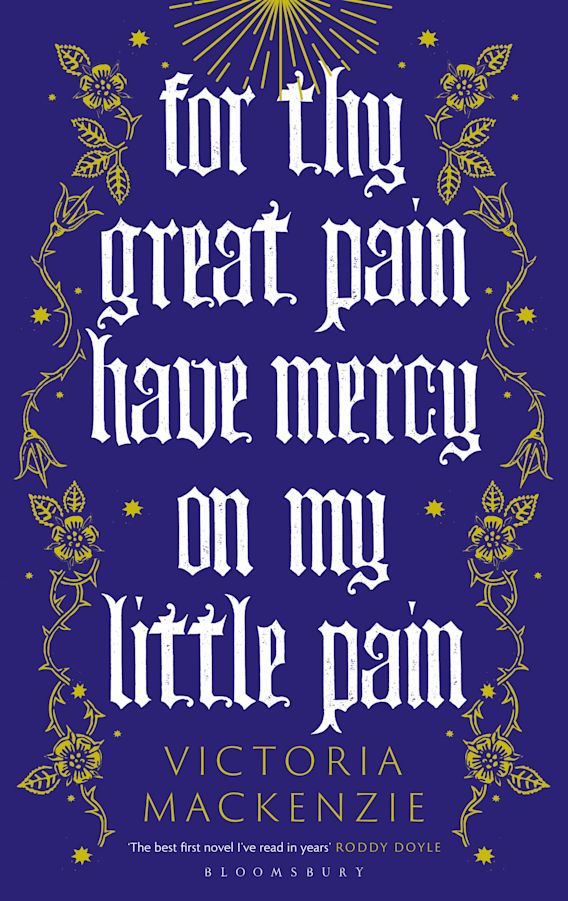
It’s credit to the skill of writer Victoria Mackenzie that it’s not actually all that surprising to discover her character Julian (female, despite the name) has chosen of her own free will to live walled up in a small stone cell she can never leave again. Or, at least, not until her death.
Life in 14th century England is so bad, we learn with dismay, that living in a self-imposed prison might have been your best option, although all Julian has to sustain her is a modest fire, a bucket for her ‘slops’ and visits from a servant who pushes food through a small window to her. Only slowly do we understand why Julian wanted and sought out such an existence.
The decision begins to make more sense as we read about not just life in Middle Ages England (grim and nasty) but also Julian’s personal story. Born in 1342, she experienced terrible tragedy, losing in her twenties both her husband and child to one of many killer illnesses ravaging the country at the time.

Mackenzie’s quiet genius lies in allowing us to imagine how someone who’s experienced such loss might want to withdraw from the world, to turn away from anything that reminds her of that pain.
Given what Julian endured, it’s even more ironic that she’s best known for words offering comfort: All shall be well, and all shall be well and all manner of things shall be well. Or maybe it’s not. Maybe only someone who’s lived through unimaginable pain could cling onto a simple message of hope with such tenacity.

Thankfully, Margery, the other narrator, is a creation of comic genius, since it’s impossible not to feel upset by Julian’s story. At the same time as weeping and crying ‘copiously’, (much to everyone else’s annoyance), Margery also fights off her enemies and detractors alike with real strength of character. “Dauntless” is how Mackenzie describes her.
It’s the gap between how seriously Margery takes herself and local townspeople’s laughter at her that makes for much merriment. But there’s a pathos and woundedness to Margery, too, a quiet dignity that evokes our sympathy. She hates her husband’s touch and resents being pregnant (after thirteen children, hardly unreasonable). She also lusts after another man, who’s unkind to her. Then there’s the near-constant threat of being burned at the stake as a heretic.
We see Julian nervously entrust her manuscript to Margery, asking her to hide it so nobody can destroy it, and we learn that a succession of different women kept the pages safe for more than five hundred years, in the process preserving one of the most important surviving texts in English literature for posterity. We learn too that the text is known to us as Revelations of Divine Love, the earliest work in English written by a woman. Margery’s book (dictated, since, like all women at the time she was never taught to read or write) is equally distinguished; it is the first autobiography written in English by either a man or a woman.
“These two books, both so nearly lost for ever, are two of the most important books written in the medieval period – and they are both by women,” writes Mackenzie in the epilogue.
It’s a wonderful feeling, being alive at a time when both books are finally reaching the readership and audience they deserve.
Thank you, Helen! These look great. Kathleen
LikeLiked by 1 person